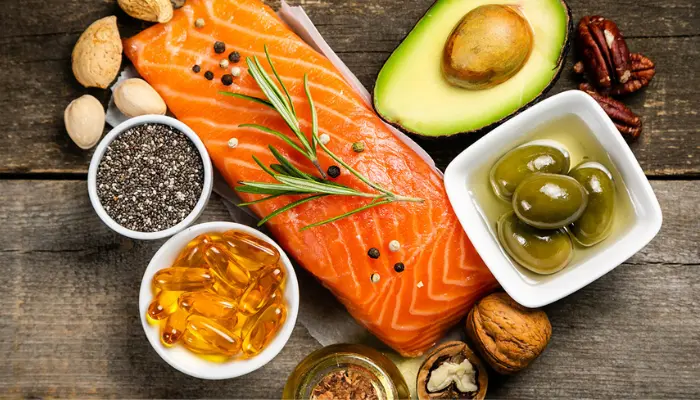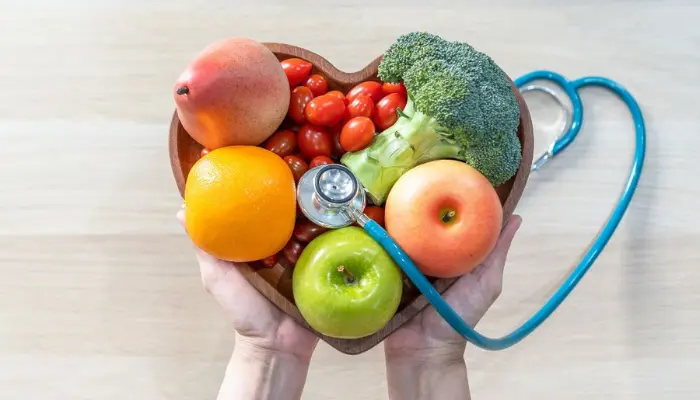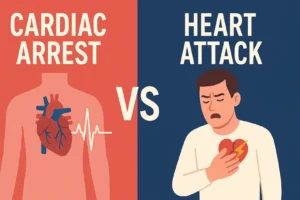Explore the causes, types, and effective treatments for cardiovascular disease. Learn how to prevent heart-related conditions and improve heart health with expert tips and medically reviewed guidance.
Heart-Healthy Diet Plan: Foods That Prevent Cardiovascular Disease
Cardiovascular disease (CVD) is the number one cause of death globally—and Pakistan is no exception. According to the Pakistan Health Research Council, nearly one-third of all deaths in Pakistan are due to heart-related conditions. But here’s the good news: up to 80% of heart disease can be prevented with simple lifestyle changes, and diet is the most powerful tool.
One in 4 middle-aged adults in Pakistan has prevalent CAD, while over 30 percent of all deaths in Pakistan are attributed to cardiovascular diseases. The good news is that adopting a heart-healthy diet can significantly reduce your risk of developing heart disease and improve overall cardiovascular health. For those seeking cardiology care in Rawalpindi, Al-Shahbaz Hospital provides expert guidance, treatment, and preventive care tailored to your heart health needs.
Table: Cardiovascular Disease Prevalence in Pakistan
| Factor | Statistic | Source |
| Deaths due to CVD annually | Over 200,000 | Pakistan Heart Foundation |
| Adults with high blood pressure | 33% | National Health Survey of Pakistan, 2022 |
| Adults with high cholesterol | 25% | WHO Pakistan, 2023 |
| Overweight/obese adults | 45% | Pakistan Demographic and Health Survey, 2019 |
Understanding Cardiovascular Disease in Pakistan
Current CVD Statistics in Pakistan
The cardiovascular disease burden in Pakistan presents a sobering picture that demands immediate attention. Recent research reveals disturbing trends that affect both urban and rural populations across the country.
| CVD Statistics | Pakistan | Global Average |
| Age-standardized incidence rate | 918.18 per 100,000 | 684.33 per 100,000 |
| Age-standardized death rate | 357.88 per 100,000 | 239.85 per 100,000 |
| Prevalence in middle-aged adults | 25% (1 in 4) | 15-20% |
| Percentage of total deaths | 30% | 31% globally |
Gender and Age Distribution
The overall prevalence of CAD (95% CI) was 26.9% (22.3%-32.0%): 23.7% (17.8%-30.9%) in men vs 30.0% (23.4-37.5%) in women. This data challenges the common misconception that heart disease primarily affects men, revealing that Pakistani women face equal or even higher risks.
| Demographics | CVD Prevalence | Key Risk Factors |
| Men (age 30-60) | 23.7% | Smoking, hypertension, and diabetes |
| Women (age 30-60) | 30.0% | Diabetes, hypertension, and obesity |
| Young adults (<40) | 15-20% | Early-onset CAD, genetic factors |
Regional Variations
The Research result showed that 17.5% (1109/6351) of the population had CVDs, with 16.6% (519/3256) being male and 18.3% (590/3124) female in Punjab province, indicating significant regional health disparities. (PubMed Central)
The Science Behind Heart-Healthy Nutrition
How Diet Affects Cardiovascular Health
Heart-healthy nutrition works through multiple mechanisms to protect your cardiovascular system. Understanding these processes helps you make informed dietary choices that can significantly impact your heart health.
Key Mechanisms:
- Cholesterol Management: Soluble fiber and healthy fats help reduce LDL (bad) cholesterol levels
- Blood Pressure Regulation: Potassium-rich foods and reduced sodium intake help maintain healthy blood pressure
- Inflammation Reduction: Antioxidants and omega-3 fatty acids combat chronic inflammation
- Blood Sugar Control: Complex carbohydrates and fiber help stabilize glucose levels
- Weight Management: Nutrient-dense, lower-calorie foods support healthy weight maintenance
Nutritional Deficiencies Contributing to CVD in Pakistan
Pakistani dietary patterns often lack essential heart-protective nutrients while being high in saturated fats, refined carbohydrates, and sodium. Common deficiencies include:
- Omega-3 fatty acids: Limited fish consumption
- Fiber: Over-reliance on refined grains
- Antioxidants: Insufficient fruit and vegetable intake
- Magnesium and potassium: Processed food consumption
- Quality protein: Excessive red meat, limited plant proteins
Essential Heart-Healthy Foods
Omega-3 Rich Foods
Omega-3 fatty acids are among the most powerful heart-protective nutrients, reducing inflammation, lowering triglycerides, and supporting a healthy heart rhythm.

Best Sources for the Pakistani Diet:
- Fish: Rohu, Katla, Hilsa, Sardines, Mackerel
- Plant Sources: Flaxseeds (alsi), chia seeds, walnuts
- Oils: Mustard oil (in moderation), canola oil
Daily Recommendations:
- 2-3 servings of fatty fish per week
- 1 tablespoon ground flaxseeds daily
- 1 ounce (28g) of walnuts daily
Fiber-Rich Foods
Soluble fiber significantly reduces cholesterol absorption and helps maintain healthy blood sugar levels.
| Food Category | Pakistani Examples | Fiber Content (per serving) |
| Whole Grains | Brown rice, oats, whole wheat | 3-4g |
| Legumes | Lentils (masoor, moong), chickpeas | 6-8g |
| Fruits | Apples, pears, citrus fruits | 3-5g |
| Vegetables | Okra, spinach, broccoli | 2-4g |
Antioxidant-Rich Foods
Antioxidants protect against oxidative stress and inflammation, key contributors to heart disease.
Top Antioxidant Foods:
- Berries: Strawberries, blueberries (when available)
- Local Fruits: Pomegranate, guava, citrus fruits
- Vegetables: Tomatoes, bell peppers, leafy greens
- Spices: Turmeric, ginger, garlic, cinnamon
- Beverages: Green tea, hibiscus tea
Potassium-Rich Foods
Potassium helps counteract sodium’s blood pressure-raising effects and supports proper heart function.
Excellent Sources:
- Bananas, oranges, melons
- Potatoes (with skin), sweet potatoes
- Spinach, kale, other leafy greens
- Yogurt, milk (low-fat)
- Beans and lentils
Foods to Limit or Avoid
Saturated and Trans Fats
These fats significantly increase cardiovascular disease risk by raising LDL cholesterol and promoting inflammation.
Foods to Limit:
- Saturated Fats: Red meat, full-fat dairy, coconut oil, ghee (use sparingly)
- Trans Fats: Processed foods, commercial baked goods, margarine, fried foods
Pakistani Diet Modifications:
- Use ghee sparingly for flavor, not as a primary cooking fat
- Choose lean cuts of meat, and remove visible fat
- Opt for low-fat dairy products
- Limit processed snacks and bakery items
High-Sodium Foods
Excessive sodium intake directly contributes to hypertension, a major cardiovascular risk factor.
| Food Category | High-Sodium Examples | Heart-Healthy Alternatives |
| Processed Meats | Sausages, kebabs, canned meat | Fresh lean meats, fish |
| Snacks | Chips, crackers, namkeen | Unsalted nuts, fresh fruits |
| Seasonings | Commercial spice mixes, MSG | Fresh herbs, homemade spice blends |
| Condiments | Ketchup, soy sauce, pickles | Fresh chutneys, lemon juice |
Added Sugars and Refined Carbohydrates
These contribute to obesity, diabetes, and inflammation, all cardiovascular risk factors.
Foods to Limit:
- Sugary drinks, sodas, sweetened teas
- Refined flour products (white bread, naan, refined rice)
- Sweets, desserts, candies
- Processed breakfast cereals
Heart-Healthy Diet Patterns
Mediterranean-Style Diet for Pakistani Palate
The Mediterranean diet, adapted for Pakistani preferences, offers excellent cardiovascular protection.
Key Principles:
- Emphasize plant foods (vegetables, fruits, whole grains, legumes)
- Use healthy fats (olive oil, nuts, seeds)
- Include moderate amounts of fish and poultry
- Limit red meat and processed foods
- Enjoy meals with family and friends
Pakistani Adaptation:
- Replace olive oil with mustard oil or small amounts of ghee
- Use local vegetables and seasonal fruits
- Include traditional lentil dishes (dal)
- Incorporate fish curry and grilled preparations
- Use yogurt-based marinades and sauces
DASH Diet (Dietary Approaches to Stop Hypertension)
The DASH diet specifically targets blood pressure reduction and overall cardiovascular health.
Daily Serving Recommendations:
- Vegetables: 4-5 servings
- Fruits: 4-5 servings
- Whole grains: 6-8 servings
- Lean proteins: 6 servings or less
- Low-fat dairy: 2-3 servings
- Nuts/seeds: 4-5 servings per week
Plant-Forward Approach
Increasing plant food consumption while reducing animal products offers significant cardiovascular benefits.
Implementation Strategy:
- Start with “Meatless Monday” concepts
- Include more lentil-based meals
- Add vegetables to traditional recipes
- Choose plant-based snacks
- Experiment with plant-based protein sources
Practical Meal Planning for Heart Health

Weekly Meal Planning Template
Monday:
- Breakfast: Oats with sliced banana and walnuts
- Lunch: Brown rice with moong dal and mixed vegetables
- Dinner: Grilled fish with quinoa and steamed broccoli
- Snacks: Apple slices with a small portion of almonds
Tuesday:
- Breakfast: Whole wheat toast with avocado and tomato
- Lunch: Chickpea curry with brown rice
- Dinner: Lentil soup with whole grain roti
- Snacks: Homemade hummus with cucumber slices
Wednesday:
- Breakfast: Vegetable omelet with whole-grain toast
- Lunch: Quinoa salad with mixed vegetables and lean chicken
- Dinner: Fish curry with steamed rice and sautéed spinach
- Snacks: Mixed nuts (unsalted) and green tea
Shopping List for Heart-Healthy Foods
Proteins:
- Fish (rohu, katla, sardines)
- Skinless chicken breast
- Lentils (masoor, moong, chana)
- Eggs
- Low-fat yogurt
Grains and Starches:
- Brown rice
- Oats
- Quinoa
- Whole wheat flour
- Sweet potatoes
Fruits and Vegetables:
- Leafy greens (spinach, kale)
- Colorful vegetables (bell peppers, tomatoes, carrots)
- Seasonal fruits (apples, citrus, berries)
- Garlic, ginger, onions
Healthy Fats:
- Olive oil
- Avocados
- Nuts (almonds, walnuts)
- Seeds (flax, chia)
Cooking Methods for Heart Health
Heart-Healthy Cooking Techniques:
- Steaming: Preserves nutrients, requires no added fats
- Grilling: Allows fat to drain away, adds flavor without oil
- Baking: Healthier than frying, requires minimal oil
- Stir-frying: Quick cooking with minimal oil
- Poaching: Gentle cooking method for fish and chicken
Seasoning Strategies:
- Use herbs and spices instead of salt
- Experiment with lemon juice, vinegar for flavor
- Create homemade spice blends
- Use garlic, ginger, and onions as flavor bases
Special Considerations for the Pakistani Population
Cultural Food Adaptations
Adapting traditional Pakistani dishes for heart health doesn’t mean sacrificing flavor or cultural significance.
Traditional Dish Modifications:
| Traditional Dish | Heart-Healthy Modification | Key Changes |
| Biryani | Brown rice biryani with lean meat | Whole grain, less oil, more vegetables |
| Karahi | Vegetable karahi with minimal oil | Reduce oil, increase vegetables |
| Parathas | Whole wheat with minimal ghee | Whole-grain flour, less fat |
| Dal | Mixed dal with vegetables | Add fiber, reduce oil |
Managing Portion Sizes
Pakistani food culture often emphasizes generous portions, but heart health requires mindful eating.
Portion Control Strategies:
- Use smaller plates and bowls
- Fill half your plate with vegetables
- Limit rice and bread portions
- Eat slowly and mindfully
- Stop eating when 80% full
Ramadan and Heart-Healthy Eating
Special considerations during Ramadan can help maintain cardiovascular health while observing religious practices.
Iftar Recommendations:
- Start with dates and water
- Include a balanced meal with lean protein, complex carbohydrates, and vegetables
- Avoid fried foods and excessive sweets
- Stay hydrated between iftar and suhur
Suhur Guidelines:
- Choose slow-digesting carbohydrates
- Include protein for satiety
- Avoid excessive salt and sugar
- Drink plenty of water
Lifestyle Factors Supporting Heart Health
Physical Activity Integration
Diet works best when combined with regular physical activity for optimal cardiovascular health.
Recommended Activities:
- 150 minutes of moderate-intensity exercise weekly
- Include both cardio and strength training
- Choose enjoyable activities (walking, cycling, dancing)
- Start gradually and increase intensity over time
Stress Management
Chronic stress significantly impacts cardiovascular health, making stress management crucial.
Stress Reduction Techniques:
- Regular meditation or prayer
- Deep breathing exercises
- Social connections and family time
- Adequate sleep (7-8 hours nightly)
- Hobbies and recreational activities
Sleep and Heart Health
Quality sleep is essential for cardiovascular recovery and overall health.
Sleep Hygiene Tips:
- Maintain a consistent sleep schedule
- Create a comfortable sleep environment
- Avoid screens before bedtime
- Limit caffeine and large meals before sleep
- Practice relaxation techniques
Monitoring Your Progress
Tracking Health Markers
Regular monitoring helps assess the effectiveness of your heart-healthy diet.
Key Markers to Track:
- Blood pressure (target: <120/80 mmHg)
- Cholesterol levels (LDL <100 mg/dL)
- Blood sugar (fasting glucose <100 mg/dL)
- Body weight and BMI
- Waist circumference
Working with Healthcare Providers
Collaborate with healthcare professionals for personalized guidance and monitoring.
When to Consult:
- Before starting major dietary changes
- If you have existing cardiovascular conditions
- For medication adjustments
- Regular check-ups and screenings
- If experiencing concerning symptoms
🫀 Nourish Your Heart, Live Stronger – Start Your Journey with Al-Shahbaz Hospital!

❤️ Take Charge of Your Heart Health with Al-Shahbaz Hospital!
🔸 Get personalized cardiac diet plans tailored to your condition
🔸 Track your progress with regular BP & cholesterol checkups
🔸 Join expert-led workshops on heart-healthy eating habits
🔸 Supportive care from our cardiology and nutrition teams
👉 Let every meal support your heart — we’re with you every step of the way!
Frequently Asked Questions (FAQs)
Can a heart-healthy diet reverse existing cardiovascular disease?
While diet cannot completely reverse established heart disease, it can significantly slow progression, reduce symptoms, and lower the risk of future cardiac events. Studies show that comprehensive lifestyle changes, including diet, can even lead to some plaque regression in coronary arteries.
How quickly will I see results from a heart-healthy diet?
Some benefits begin immediately, such as improved blood sugar control and reduced inflammation. Cholesterol levels may improve within 2-4 weeks, while blood pressure changes can occur within days to weeks. Significant cardiovascular risk reduction typically occurs over months to years of consistent healthy eating.
Is it expensive to maintain a heart-healthy diet in Pakistan?
A heart-healthy diet can be more economical than a typical diet high in processed foods and meat. Staples like lentils, seasonal vegetables, whole grains, and local fish are often more affordable than processed foods and excessive amounts of meat.
Can I still enjoy traditional Pakistani foods on a heart-healthy diet?
Absolutely! The key is modifying preparation methods and ingredients while maintaining authentic flavors. Use less oil, choose leaner meats, add more vegetables, and use whole grains. Most traditional dishes can be adapted to be heart-healthy.
What’s the most important dietary change I can make for heart health?
If you can only make one change, increase your vegetable and fruit intake while reducing processed foods. This single change addresses multiple risk factors: increases fiber and antioxidants, reduces sodium and unhealthy fats, and typically leads to better portion control.
How much fish should I eat weekly for heart health?
Aim for 2-3 servings of fish per week, with at least two servings being fatty fish rich in omega-3s. A serving is about 3.5 ounces (100g) of cooked fish. Local options like rohu, katla, and hilsa are excellent choices.
Are supplements necessary for heart health, or is food enough?
A well-planned heart-healthy diet typically provides the most necessary nutrients. However, some people may benefit from omega-3 supplements if fish intake is insufficient, or vitamin D supplements in case of deficiency. Always consult with a healthcare provider before starting supplements.
Conclusion
Adopting a heart-healthy diet is one of the most powerful steps you can take to prevent cardiovascular disease and improve your overall health. With cardiovascular disease affecting millions of Pakistanis and serving as a leading cause of death, the time for action is now.
The evidence is clear: the foods you choose daily directly impact your cardiovascular health. By incorporating omega-3-rich fish, fiber-packed legumes, antioxidant-rich fruits and vegetables, and whole grains while limiting processed foods, excessive saturated fats, and added sugars, you can significantly reduce your risk of heart disease.
Remember that sustainable change happens gradually. Start with small modifications to your favorite dishes, experiment with new heart-healthy recipes, and gradually expand your repertoire of nutritious foods. The goal isn’t perfection but consistent progress toward better cardiovascular health.









